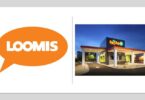What hasn’t the world thrown at agencies of late? Years of economic instability: Check. Tariffs and declining consumer sentiment: Check. Mounting signal loss, compounded by Google flip-flopping on third-party cookies for half a decade: Check. The explosion of generative AI, rising rates from media partners, reduced client budgets, and media fragmentation: Check, check, check, and check.
Despite these pressures, most agency leaders remain optimistic, with 76.8% feeling confident about the future of their businesses—though, notably, this marks a slight decline from last year’s 82.4%. But the ongoing upheaval is taking its toll on agency staff: Over three-quarters of agency professionals say their jobs have gotten harder in the past two years, and six in 10 say that digital advertising in general has grown more difficult in that same time span.
However, periods of change often provide opportunities for growth and innovation, and agency leaders can leverage the forces reshaping the industry to gain a competitive edge over those who may be more hesitant to embrace those shifts. The question is, how can they approach this evolution thoughtfully and strategically, despite the many unknowns?
To find out, we spoke with five industry veterans about what agency leaders need to know in this moment, and how they can situate their organizations to not only adapt as the industry transforms, but thrive in this new environment.
What are the biggest pressures and challenges forcing agencies to evolve?
April Weeks | Chief Investment & Media Officer – Basis: The biggest pressures facing agencies today are driving business growth while simultaneously finding operational efficiencies and meeting increasing client demands. Economic uncertainty, declining consumer loyalty, and rising labor costs have only intensified these challenges.
Many organizations now view artificial intelligence as a potential solution to these pressures—particularly through agentic capabilities—and the expectation for time and cost savings through automation and AI solutions is increasingly top of mind for clients, though in some cases it’s outpacing the reality of where agencies are today. This is forcing agencies to reevaluate traditional approaches to winning and retaining business and explore new models for how they support the business cost efficiently, all while delivering the desired business outcomes.
Katie McAdams | Chief Marketing Officer – Basis: Fragmentation and the proliferation of platforms required to execute and manage media have advanced at a pace agencies are struggling to keep up with. At the same time, agencies are under pressure to drive profit, growth, and media spend.
Along with this, there are a variety of challenges agencies are facing related to AI adoption. There’s still a lot of uncertainty around how AI is going to impact how agency teams will be structured, so leaders are assessing where to add headcount versus where AI can lead. These are big questions they’re grappling with around the role AI will play in this new environment versus where people are most effective. Adding to the complexity, the market has been flooded with new AI solutions and leaders are trying to weed through to see what’s real and what’s vaporware.
Ryan Manchee | SVP, Brand Marketing – Basis: Agencies are being asked to do more with less. Client demands have increased, and relationships are shifting from AOR to project-based, challenging the economics of the agency model. Savvy agencies are creating new revenue streams—from data plays for enhanced addressability to advanced analytics that prove outcomes—but many are still struggling to stay ahead and effectively grow their businesses.
Compounding these pressures, the rise of AI and automation is rapidly changing what brands need from their agencies and how agencies deploy their teams. Many agency leaders are hesitant to hire more employees until they understand how these new tools and processes will impact their business.
Michael Olson | EVP, Client Development – Basis: The rise of AI and increasing complexity in the media landscape are two major forces pushing agencies to evolve.
When it comes to AI, agencies are trying to find the balance between what AI can and cannot replace in terms of human labor. The market has shifted from revenue at all costs to profitability, so companies don’t want to add any incremental employee costs if they don’t have to. But on the flip side, many agency contracts with brands are still in the FTE model—so those are opposing forces.
At the same time, the media landscape is growing more complex. The rise of retail media networks across all verticals, agentic AI, and competition between DSPs and SSPs are fragmenting the space. RMNs and agentic AI also adding walled gardens to advertisers’ media mixes. Other channels are rapidly evolving as well: For example, Comcast recently introduced programmatic advertising for linear TV through FreeWheel, and I think we’re going to see a real shift in 2026 of linear dollars increasingly being bought through ad tech platforms.
Overall, there’s just so much change happening in the industry on the tech side, and it’s a real challenge for agencies to keep track of and adapt to while pitching new business and ensuring the balance sheet is strong.
How can agencies stay competitive and prepare for the coming changes driven by these pressures and challenges?
AW: Agencies should be evaluating their approach to technology and how they deliver value to clients. Waiting to see where the industry goes next and specifically how to integrate automation, whether through AI or other technology solutions, will only make the agency more vulnerable in the future. As the rate of change continues to increase, agencies should embrace a test and learn approach, take smart risks, learn quickly, fail fast, and remain agile.
KM: One major way agencies can stay competitive and future-oriented is by understanding and embracing brands’ desire for transparency. Agencies should be building their cost structures in a way that anticipates client expectations for transparency in everything from pricing to cost of paid media to cost of data and beyond. Brands know there are platforms out there that provide that level of transparency, and they’re only going to demand it more and more.
RM: As an industry, we’re often too focused on innovation of technology over the importance of intersecting with culture. Brands hire agencies for a variety of reasons, one of them being their ability to stay on top of what’s new and what’s coming up ahead. This can be a key differentiator: Agencies can help increase brand memorability and drive culture by aligning a brand’s products or services with key moments, from tentpole sporting events like the Super Bowl and World Cup to breakthrough moments in pop culture. The agencies that keep this aspect of their service in focus have been and will stay competitive and successful.
MO: The number one priority for agencies these days is top line growth while maintaining healthy and growing EBITDA margins. In general, employee growth and employee experience have taken a back seat to profitability. And of course, making sure revenue turns into profit is incredibly important, because if you don’t do that you can’t provide an environment for organizational culture to thrive.
However, to drive this growth, agencies cannot lose sight of their talent. There’s an old adage that says, “Your most valuable assets get in the elevator and walk out the door every day.” Agencies must maintain focus on their talent, because ultimately, those are the people who are going to help them keep their clients and win new clients to make that top line growth happen.
Part of maintaining focus on talent means preparing employees for an evolving industry. That means it’s critical for agency leaders to ensure their teams are learning how to work with AI. AI will come for some jobs, but in most cases, it’s not going to be AI that replaces people—it’s going to be people who are better at leveraging AI.
Lauren Johnson | Client Strategy & Effectiveness Lead – Basis: When I’m thinking about how agencies need to evolve, I think about how they need to be able to answer the hard questions.
Brands will continue to push agency partners to validate both their investment decisions and their creative decisions. They’re focused on understanding the business outcomes of their media investments. That’s why agencies’ creativity needs to be rooted in a place of effectiveness: shaping strong POVs for testing and learning, developing experiments to validate decisions, and creative problem-solving across investments both small and large. Creativity, new ideas, thought leadership, and effective media plans that build client confidence should be focus areas.
At the same time, agencies exist to help brands grow, and in today’s landscape that means they must embrace change and try new things by leveraging technology—from AI to modeling technology to automation—to find new solutions to the same problems.
How is the relationship between agencies and brands evolving? What should be top-of-mind for agency leaders looking to meet brands’ needs moving into 2025?
AW: CMOs are under a tremendous amount of pressure. They are expected to be a Swiss Army knife when it comes to knowing what is happening across their business, the industry, the next emerging trend, and how to outsmart their competition—and often with far less budget than what they need. The expectation to show meaningful business outcomes and justify every dollar is higher than ever.
Agencies need to recognize these pressures and come to the table with solutions that highlight marketing as a revenue generating function versus a cost center. Doing this requires a true partnership with clear agreements on the business problems to be solved, the performance expectations to be met, and a plan to do so. Agencies also need to help brands understand and navigate the evolving media landscape, and in turn, brands need to support agencies with appropriate staffing and timelines.
RM: Many agencies have embraced expertise they’ve gained working with brands in certain categories or verticals. This has helped them differentiate and enabled them to go deeper with their existing and prospective clients.
With economic turbulence and supply challenges, many brands are also scaling back their long-term planning. This may help them to stay nimble and see short-term positive results, but it will have an impact on their brand-building efforts that take time, investment, and smart planning. Agency teams who can balance the short- and long-term planning, while leaning on their growing expertise, will see the biggest gains.
LJ: Brands’ marketing teams are more stressed than ever. They don’t have the budgets they need to meet their goals, they are expected to be experts on all things media, and they are under pressure to navigate the noise of an increasingly complex landscape.
This stressed state means brands are looking for more than just agency partnerships that can activate media with efficiency. They are looking for strategic partners that make them smarter and more confident in their marketing decisions. At the same time, they want smart, simple solutions that cut through the noise and resonate at the executive level.
Moving into 2026, agencies must commit to providing meaningful business-level partnerships that help clients navigate through all the complexity and upheaval that characterizes the industry today. Forward-thinking agencies will be using every engagement to share how advertising is impacting their clients’ business, offering up new solutions backed by innovative thinking, and elevating client conversations beyond lower-level topics—such as short-term KPIs and allocating budget into different media channels—that don’t hold weight with bigger business conversations.
In your conversations with agency leaders, what topics are on the forefront of their minds? How are they thinking about the evolution of agencies?
AW: Driving business growth and creating efficiencies are certainly top of mind. How can agencies deliver more value cost efficiently? What are the mechanisms to generate cost savings and efficiency within their business, while balancing increasing labor costs with economic pressures? As a result, many agencies are looking for bigger client wins, ways to outsource some functions, or offload less profitable accounts.
MO: The following topics are forefront in agency leaders’ minds: Offsetting costs and growing revenue with AI tools, systems and platforms; ensuring they have the right talent that knows how to leverage those tools, systems, and platforms for efficiency and gain; reducing the cost to pitch and win new business; navigating the ever-changing landscape of media activation, reporting, and reconciliation; and ensuring they have the right outcome-based partnerships with all their vendors and platforms to provide strategic value back to their brands.
In terms of how agency leaders are thinking about evolving, it all comes down to getting clear on what their business excels at, and then doubling down with smart tech and good talent. Leaders should also reduce efforts to try and boil the ocean, which tends to end with results that are just OK.
How will the adoption of AI- and automation-driven technology shape the future of agencies?
AW: AI and agentic solutions are reshaping how deliverables are created, as well as their associated timelines and costs. Work that currently requires multiple teams is being condensed to fewer people and shorter timelines.
KM: Gen AI is now being used across every part of the digital media process. But for many agencies, that constitutes a variety of stitched-together point solutions, which results in a significant amount of complexity. Considering this, the smartest agencies are working to figure out how to reduce that complexity and weave gen AI as seamlessly as possible into their existing tech stacks.
At the same time, clients are going to be asking how agencies are using AI to drive effectiveness and efficiency, so the ways agencies are integrating gen AI—and agentic AI as well—into their operations needs to be part of their pitch.
RM: Mitigating the mundane and monotonous to free up time for the fun and fantastic. As AI and automation deliver on that promise, agencies will be well positioned for growth, and for their team’s growth.
Through automation, there’s an opportunity to reevaluate where talent is best utilized and to shift employees’ time to high-value tasks. Within the last six months, we’ve also seen the emergence of agentic AI that can impact day-to-day business operations, allowing teams to rethink how they prioritize their time and efforts.
MO: Humans should not be completely removed from the equation. The magic place we want to get to is a beneficial blend of AI and humans to ensure efficiencies throughout the agency. Shifting employee responsibilities from low-value work to high-value strategic work will not only empower them to grow, but also allow businesses to reduce costs needed to pay people for low-value activities that machines can do quickly and accurately.
When it comes to AI, agencies also need to be able to see through the fluff. There’s a lot of vaporware in the market right now, and a lot of shiny new toys. It’s going to be critically important for agencies to be able to evaluate which tools can offer real value.
Being able to move faster and achieve more is what’s most important. The agencies who figure out how to integrate their AI in a way where 1+1=5 will be best positioned for success. I could argue that with how rapidly AI is accelerating code development, any agency can build custom technology with minimal financial investment to help usher their agency into a new era.
How will agencies need to restructure their teams and talent models as AI becomes more integrated into their operations? What skills and capabilities will define the next generation of successful agency professionals?
AW: Agencies should take an agile approach to their organization design based on where AI can deliver efficiency. As media continues to converge and more channels can be executed programmatically, agencies will need to work to remove siloes to more effectively deliver holistic recommendations focused on achievement of business outcomes.
In terms of the next generation of agency professionals, I believe that curiosity will remain a highly valuable skillset. Remaining open to new ways of planning and activating will be essential, as agentic AI’s ability to automate tasks will fundamentally reshape advertisers’ workflows. In general, embracing AI tools and solutions to support new ways of working will be an expectation for all agency professionals. As certain responsibilities become automated, the next generation of agency advertisers will have the opportunity to reshape where they spend time to drive value.
KM: Agency leaders should be curating teams that can keep up with a rapid pace of change and seeking out the kind of people who are going to run towards change versus resist it. Employees who are resistant to change can hold the whole team back.
This is about creating a culture where embracing change is the norm. Leaders should be thinking about how to curate an environment that is conducive to people seeing change as a growth vehicle for themselves rather than something that they should be afraid of. They might even think about incentivizing that kind of behavior.
What’s your “hottest take” on the future of agencies?
AW: We’re experiencing a period of rapid evolution. The agency of the future will have technology and AI as a crucial point of all operations, with talent well-versed and comfortable using AI tools to derive solutions. Creative and content, influencer marketing, and media will become more tightly connected and we will continue to see convergence of media across planning and activation, leading to hybrid roles within agencies.
KM: The agencies that are going to win new business in this new era of advertising are those who have figured out how to integrate gen AI and agentic AI into their operations in a way that constitutes a kind of “secret sauce” that sets them apart from other agencies.
MO: There are so many tech-related evolutions happening in the industry right now, but agencies need to keep their focus on acting as trusted advisors to their clients to achieve their desired outcomes.
I also think that an agency’s ability to provide excellent service is going to be a differentiator. Chatbots and agentic AI are increasingly being used to streamline communications—which can be incredibly valuable—but providing that human touch and stand-out service is absolutely critical.
The Future of Agencies: Wrapping Up
While the best approach to evolution will vary based on each agency’s characteristics, strengths, and goals, there are a few north stars leaders can follow to ensure they aren’t left behind. These include maintaining focus on the wellbeing and retention of agency staff, as well as investing strategically in AI- and automation-driven tools designed to make teams more efficient. By leaning into these strategies, advertising leaders will position their organizations to thrive in a rapidly evolving landscape, stay ahead of competitors, and foster a culture of innovation that keeps their teams engaged and their clients satisfied.
There’s so much more to explore when it comes to the current state of advertising agencies and how they’re set to evolve in the coming years. To dive deeper, we surveyed advertising industry professionals from across the US to find out how they feel about their jobs, their agencies, and the current trajectory of the digital advertising industry. Discover all the top insights in our 2025 Advertising Agency Report.









